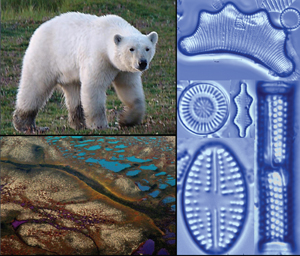 |
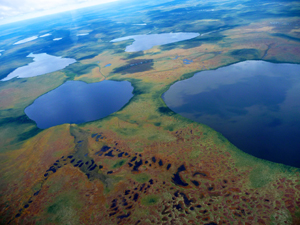 |
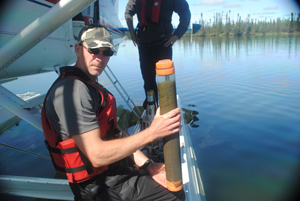 |
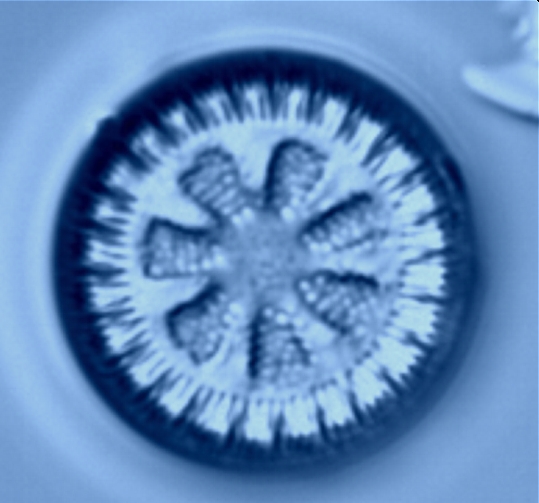 |
In stark contrast to the rest of the Arctic, the Hudson Bay Lowlands has not experienced a rise in air temperature, remaining one of the planet’s last Arctic refugia from global warming– that is until very recently. In only a few decades, regional temperatures have increased at a pace and magnitude that are exceptional even by Arctic standards. The team reports that, within this short warming period, pronounced responses in freshwater biota have already become apparent.
The rapid transition of this remote subarctic region from an area that has long maintained relatively cool and stable temperatures to one of intense warming provided the team with a rare, natural observatory for identifying the effects of rapid climate change in the absence of additional human influences.
“Our findings indicate that ecological tipping points have been crossed and, sadly, we are witnessing the loss of Arctic ecosystems as we know them”, says Queen’s Biology research scientist, Dr. Kathleen Rühland, from the university’s Paleoecological Environmental Assessment and Research Lab (PEARL) and lead author of the study.
The research was recently published in the prestigious international journal Proceedings of the Royal Society B. Also on the team are Biology professor John Smol, Canada Research Chair in Environmental Change, Andrew Paterson, a research scientist at the Ontario Ministry of the Environment and an adjunct professor at Queen’s, Bill Keller, Director of Climate Change and Multiple Stressor Aquatic Research at the Cooperative Freshwater Ecology Unit at Laurentian University, and Neal Michelutti, a research scientist from Queen’s University’s PEARL.
The Hudson Bay Lowlands is the southern-most subarctic region in the world, that contains one of the world’s largest peatland ecosystems and a significant global carbon reservoir, and it is home to the world’s southern-most population of polar bears who depend upon Hudson Bay sea ice for survival.
“With the rapid onset of warming and more extreme weather conditions that we are currently witnessing in this region, it is becoming far less predictable for First Nations people to be able to follow traditional fishing and hunting routes” says Bill Keller from Laurentian University.
The scientists studied changes over the past ~70 years in the species composition of microscopic algae (diatoms) preserved in lake sediments from Ontario’s Hudson Bay Lowlands. These algae are an important component of lake ecosystems and serve as food for other larger organisms.
One of the biggest challenges with environmental studies, particularly in remote regions, is the lack of long-term monitoring data, Dr. Andrew Paterson notes. “However, the fossils preserved in lake sediments archive an important record of past ecosystem changes,” he says.
Coherent aquatic ecosystem changes were observed in all of their study lakes, which were characterized by recent shifts in diatom assemblages from a relatively stable and simple assemblage consisting of benthic (attached to substrates) species to more diverse assemblages that now include open water (planktonic) diatoms.
Lakes in the Hudson Bay region have experienced very little biological change for hundreds of years, consistent with a lack of warming, up until the last few decades. However, after the mid-1990s, the research team recorded striking biological shifts in the fossil aquatic biota which were very similar to the types of changes found in earlier sediments throughout the circum-polar Arctic as a response to increased air temperatures and a longer ice-free period.
“This is a clear indication of the beginning of unprecedented ecological change in this region” says Prof. John Smol, recipient of the 2004 Herzberg Gold Medal as Canada’s top scientist.
What stands out in this study is that these ecosystem shifts have occurred much later in the Hudson Bay Lowlands than in other parts of the Arctic, providing strong corroboration that recent warming is driving this trend.
“The timing and nature of these changes in both diatom community composition and recent increases in lake primary production are consistent with the abrupt shift to warmer conditions in the Hudson Bay Lowlands starting in the mid-1990s”, says Dr. Neal Michelutti of Queen’s University.
“Continued warming at the rate and magnitude currently underway will undoubtedly lead to more pronounced ecosystem responses, the effects of which can cascade throughout the entire ecosystem. We are entering uncharted territory,” warns Dr. Smol.
The research was supported by the Natural Sciences and Engineering Research Council of Canada (J.P. Smol), and the Ontario Ministry of the Environment through the Climate Change and Multiple Stressor Research Program at Laurentian University (W. Keller).
PLEASE NOTE: A PDF of the study can be obtained from the Proceedings of the Royal Society B website, or contact Dr. John Smol at smolj@queensu.ca.
Contact:
Rosie Hales or Anne Craig
Communications Officers
News and Media Services
Queen's University
Kingston, Ontario, Canada
Anne 613-533-2877,
anne.craig@queensu.ca
Rosie 613-533-6000 ext. 77513,
rgh3@queensu.ca
Attention broadcasters: Queen’s has facilities to provide broadcast quality audio and video feeds. For television interviews, we can provide a live, real-time double ender from Kingston via fibre-optic cable.
NOTE: For high-resolution JPEGS related to this paper, Click Here.
|
Kathleen Rühland |
|
Andrew M. Paterson |
|
W. (Bill) Keller |
|
Neal Michelutti |
| John P. Smol Paleoecological Environmental Assessment and Research Lab (PEARL) Department of Biology, Queen's University 116 Barrie St. Kingston, ON, Canada, K7L 3N6 Telephone: 613-533-6147 Email: smolj@queensu.ca |
Links to some of the media coverage of this paper:
Radio:
Newspapers etc:
|